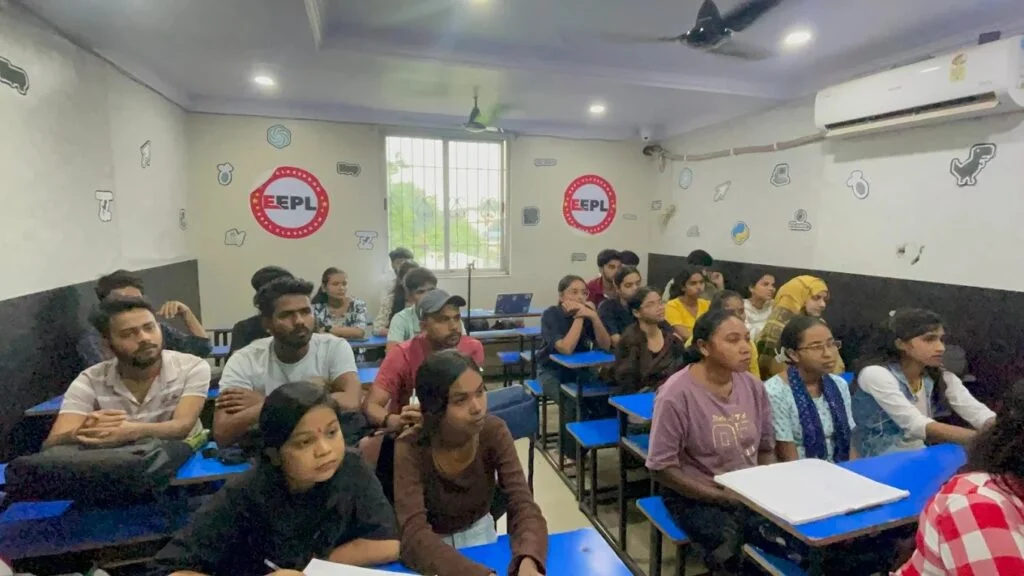Introduction to Competitive Exams After Class 12
Competitive exams after class 12 play a crucial role in shaping the academic and professional journeys of students. As students transition from school to higher education, they encounter a multitude of pathways that can lead to diverse career opportunities. Engaging in these exams becomes essential, as they serve as gateways to prestigious institutions and specialized fields such as engineering, medicine, law, and arts.
The significance of these exams cannot be overstated. They not only evaluate the knowledge and preparedness of students but also benchmark their capabilities against peers nationwide. For instance, exams like the Joint Entrance Examination (JEE) for engineering aspirants and the National Eligibility cum Entrance Test (NEET) for medical students are designed to assess critical thinking, problem-solving, and subject mastery, which are pivotal in higher education. Furthermore, the results of these exams significantly influence the availability of opportunities for students, often determining their prospects for admission into reputable colleges and universities.
Ultimately, competitive exams after class 12 are more than just assessments; they are pivotal in defining educational trajectories and opening avenues in various fields. As students embark on this journey, recognizing the significance of these exams will guide them toward their desired career paths, laying a solid foundation for their future endeavors.
Popular Competitive Exams for Science Students
Students who have completed their 12th grade in science face numerous opportunities to further their education through competitive exams. Among the most prominent exams are the Joint Entrance Examination (JEE) and the National Eligibility cum Entrance Test (NEET). Understanding these exams, along with others like the All India Pre-Medical Test (AIPMT) and the National Institute of Design (NID) entrance exam, is crucial for aspirants aiming to carve out a successful career.
The JEE comprises two main phases: JEE Main and JEE Advanced. It serves as a gateway to various engineering institutes in India, including the esteemed Indian Institutes of Technology (IITs). To be eligible, students must have completed their 12th grade with Physics, Chemistry, and Mathematics as core subjects. JEE Main primarily focuses on conceptual understanding and problem-solving skills, while JEE Advanced assesses deeper analytical abilities.
Conversely, NEET is the qualifying examination for aspiring medical students. It evaluates students’ knowledge in subjects such as Biology, Chemistry, and Physics. Candidates must complete 12th grade with suitable marks in these subjects to qualify for NEET. Success in this examination opens doors to medical colleges across the country, allowing students to pursue careers in fields like medicine, dentistry, and allied health sciences.
It is also worth considering other competitive exams. The AIPMT, although now replaced by NEET, was historically significant for medical admissions. Additionally, exams related to design like the NID entrance test cater to students interested in arts and design, providing varied career options. Choosing the right competitive exam is essential; students should analyze their strengths, interests, and career goals to determine which path aligns best with their aspirations for higher education.

Competitive Exams for Commerce and Arts Students
For students who have completed Class 12 in the commerce and arts streams, pursuing competitive exams is a critical step towards establishing a successful career. One of the prominent examinations for commerce students is the Chartered Accountancy (CA) exam. This rigorous examination is divided into three levels: CA Foundation, CA Intermediate, and CA Final. The subjects tested include Accounting, Business Laws, and Taxation, among others. A career as a Chartered Accountant not only offers diversity in job roles but also high earning potential, making it a sought-after choice for commerce aspirants.
Another significant exam for students from both streams is the Common Law Admission Test (CLAT), which is a gateway for undergraduate and postgraduate law programs in India. The exam assesses candidates on various subjects including English, General Knowledge, Legal Aptitude, and Logical Reasoning. Those who succeed in the CLAT can look forward to a fruitful career in legal studies, acting as lawyers, judges, or legal advisors, contributing positively to society.
For arts students, the National Eligibility Test (NET) is vital for those wishing to pursue a career in academia. The NET exam determines eligibility for university-level lectureships and for the award of Junior Research Fellowships (JRF) in various disciplines. The examination covers various subjects, depending on the candidate’s academic background. Scoring well in NET not only opens doors to teaching positions but also provides research opportunities in prestigious institutions.
When selecting the most suitable examination, students should consider their interests, strengths, and long-term career aspirations. Comprehensive research and self-analysis are fundamental in making informed decisions. By aligning their academic strengths with their personal goals, students can choose the exam that best supports their ambitions and leads to rewarding career paths.
Preparation Tips for Success in Competitive Exams
Success in competitive exams hinges on a well-structured preparation strategy. To achieve this, effective study techniques must be employed. It is advisable for students to create a comprehensive study schedule that breaks down topics into manageable sections. This not only facilitates better understanding but also alleviates anxiety associated with last-minute cramming. Utilizing methods such as active recall and spaced repetition can aid in retaining crucial information, making the studying process more efficient.
Equally important is time management. Students should prioritize their daily tasks by establishing a balance between study sessions, breaks, and personal time. Adopting techniques like the Pomodoro Technique, where study intervals are followed by short breaks, can enhance concentration levels and prevent burnout. Allocating specific hours to tackle challenging topics further boosts confidence and ensures mastery of the material.
Mock tests play a pivotal role in exam preparation. Engaging in simulated exam scenarios allows students to familiarize themselves with the test format, question types, and time constraints. Regularly taking mock tests not only helps in assessing one’s progress but also identifies areas that require further attention. Analyzing performance in these tests can illuminate patterns of strengths and weaknesses, paving the way for tailored study approaches.
Maintaining a positive mindset is fundamental throughout the preparation journey. Students should practice self-care, engage in relaxation techniques, and surround themselves with supportive peers. Establishing realistic goals serves as motivation, while healthy habits such as proper nutrition and sufficient sleep contribute significantly to cognitive function.
Conclusion
Additionally, leveraging resources such as coaching classes, online platforms, and comprehensive books can further enhance the preparation process. These tools provide expert guidance, invaluable practice materials, and community support, increasing the likelihood of success in competitive exams. By integrating these strategies, students can navigate their preparation with confidence and clarity, ultimately maximizing their potential for achievement.
Read Our Latest Blog
Understanding the Theory of Relativity in Simple Words
Phone Number: +91-7488456170
Email ID: abhishek@eepl.me
Our Platforms:
Digilearn Cloud
EEPL Test
Live Emancipation
Follow Us on Social Media:
Instagram – EEPL Classroom
Facebook – EEPL Classroom
Stay connected and keep learning with EEPL Classroom !










